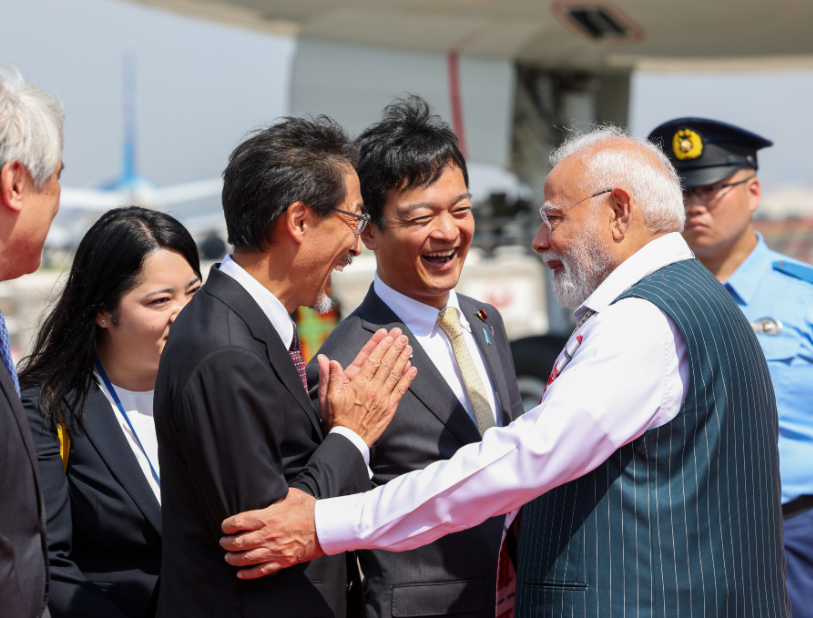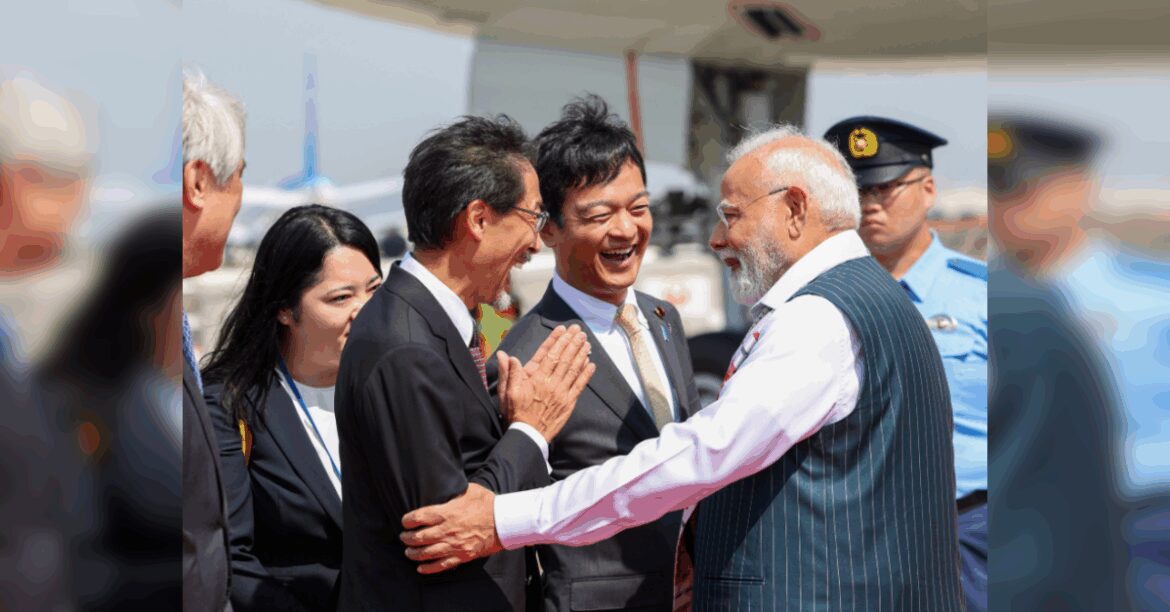 As part of the visit, Modi and Ishiba are expected to tour the Tohoku Shinkansen plant in Sendai, where the trains are built, signalling the seriousness with which both countries are approaching this new partnership. Prime Minister Narendra Modi is set to meet his Japanese counterpart Shigeru Ishiba on Friday for the 15th India–Japan Annual Summit. This will be Modi’s first standalone visit to Japan in nearly seven years and his first meeting with Ishiba.
As part of the visit, Modi and Ishiba are expected to tour the Tohoku Shinkansen plant in Sendai, where the trains are built, signalling the seriousness with which both countries are approaching this new partnership. Prime Minister Narendra Modi is set to meet his Japanese counterpart Shigeru Ishiba on Friday for the 15th India–Japan Annual Summit. This will be Modi’s first standalone visit to Japan in nearly seven years and his first meeting with Ishiba.
The agenda will likely cover infrastructure, energy, defence, security, trade, economy, technology and innovation with one of the expected announcements being a partnership to manufacture the next generation E10 Shinkansen bullet trains in India.
Bullet train cooperationHigh–speed rail is expected to dominate discussions at the Summit, with both sides preparing to take forward their collaboration in this sector. India is likely to procure Japan’s next–generation E10 Shinkansen bullet trains, which currently run at 320 km/h and are designed with earthquake–resistant systems. The model, still under testing in Japan, is scheduled to enter service in 2030 and has the potential to reach 400 km/h.
As part of the visit, Modi and Ishiba are expected to tour the Tohoku Shinkansen plant in Sendai, where the trains are built, signalling the seriousness with which both countries are approaching this new partnership. The E10 project is likely to be folded into a broader transport and mobility framework that the two governments are preparing to announce.
The shift to the E10 also marks a change from earlier plans. India was originally slated to acquire the older E5 model, but with Japan’s agreement, both countries will now roll out the E10 at the same time. The talks may also widen to explore extensions of India’s bullet train network beyond the ongoing Mumbai–Ahmedabad line, where Japan is already a key partner.Semiconductor, AI and defence partnershipsAlongside transport, technology and defence are set to be major themes of the meeting. Modi and Ishiba will visit the Tokyo Electron Factory, one of Japan’s leading chipmakers, underlining semiconductor cooperation as a priority. Japan is investing heavily in semiconductors and artificial intelligence, and the two sides are expected to create new opportunities for Indian firms and engineers within that expansion.The leaders are also likely to unveil a joint initiative on AI, aimed at supporting startups, building digital infrastructure, and collaborating on telecom and clean energy technologies.
On defence, discussions are expected to include progress on the UNICORN radar and communications project for India’s naval systems, as well as joint work on ship maintenance and equipment development. Both governments are considering an upgrade of their 2008 security agreement, with expanded cooperation in cybersecurity and maritime security.
Space and investment plansSpace will remain on the agenda, with the Indian Space Research Organisation (ISRO) and Japan’s JAXA continuing work on the Lunar Polar Exploration Mission (LUPEX), linked to India’s Chandrayaan–5 programme. The project could create opportunities for Indian startups to access Japanese technology in future missions.
On the economic side, Modi and Ishiba are expected to raise their investment target after the earlier goal of 5 trillion yen in Japanese investment by 2026 was met ahead of schedule. The new target is likely to be set between 7 and 10 trillion yen.
Onward to ChinaAhead of his trip, Modi said his Japan visit would focus on shaping the next phase of the India–Japan Special Strategic and Global Partnership, expanding economic and investment ties, and advancing cooperation in emerging technologies such as artificial intelligence and semiconductors.
“At the invitation of Prime Minister Shigeru Ishiba, I am embarking on a two day visit to Japan for the 15th Annual Summit. During my visit, we would focus on shaping the next phase in our Special Strategic and Global Partnership, which has made steady and significant progress over the past eleven years,” he said in an official statement.
He added that India-Japan would endeavour to give new wings to their collaboration, expand scope and ambition of their economic and investment ties, and advance cooperation in new and emerging technologies, including AI and semiconductors.
Modi will then travel to Tianjin, China, to attend the Shanghai Cooperation Organisation (SCO) Summit at the invitation of President Xi Jinping. He said India remains committed to working with SCO members to address shared challenges and deepen regional cooperation, adding that he looked forward to meetings with President Xi, President Putin and other leaders on the sidelines.
“I am confident that my visits to Japan and China would further our national interests and priorities, and contribute to building fruitful cooperation in advancing regional and global peace, security, and sustainable development,” the Prime Minister said.
Published On Aug 29, 2025 at 12:36 PM IST
Join the community of 2M+ industry professionals.
Subscribe to Newsletter to get latest insights & analysis in your inbox.
Get updates on your preferred social platform
Follow us for the latest news, insider access to events and more.


AloJapan.com